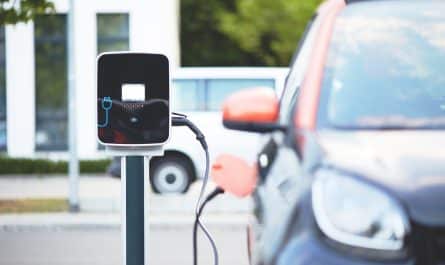THE electric vehicles, whether cars or motorcycles, have clearly marked a turning point in the transport sector. Between the growing environmental concerns and the enormous technological advances, it has become clear that the future of mobility lies in these innovative solutions. Why is this transformation inevitable and how does it really influence our daily lives? Let’s dive together into this fascinating world of sustainable mobility.
A response to environmental challenges
Reduction of polluting emissions
The environmental impact of thermal vehicles no longer needs to be proven. THE traditional cars and motorcycles emit a considerable amount of CO2 and other polluting gases which contribute to global warming. On the other hand, the electric vehicles do not emit CO2 during use. This is a huge benefit for reducing our carbon footprint and combating climate change.
Adopting electric vehicles also means fewer fine particles in the air of urban areas, helping to improve air quality and public health. This transition towards a safer mobility has never been more necessary.
Renewable energy resources
Another important aspect is the possibility of feeding the autonomous cars of the future using renewable energy sources. These vehicles can be recharged with electricity produced by solar panels, wind turbines or other green energy sources, making their use even more environmentally friendly.
This not only reduces dependence on fossil fuels, but also to stimulate investment and innovation in the field of renewable energies, thus creating a virtuous circle for the planet.
Sustainability and economy
Fuel savings
One of the main economic advantages of electric vehicles is the drastic reduction in costs associated with the purchase of fuel. Electricity often costs much less than gasoline or diesel. In addition, with the possibility of recharging your vehicle at home via a standard socket or a dedicated charging station, costs are further reduced.
It is even possible to take advantage of off-peak hours to optimize savings on electricity bills. This represents a profitable solution both for the consumer and for the overall economy by reducing our dependence on volatile prices of fossil fuels.
Reduced maintenance costs
THE electric motors are known to be simpler than their internal combustion counterparts. Fewer moving parts means less wear and therefore less maintenance requirements. There is no need to change oil, frequently replace filters or perform other costly and time-consuming tasks related to combustion engines.
These technological advances also ensure a long life of key components, such as efficient electric batteries, whose life expectancy continues to increase thanks to constant innovations.
Cutting-edge technology at our service
Autonomous driving
THE cars of tomorrow will be distinguished by their ability to make journeys without human intervention. Thanks to the autonomous driving, it will soon be possible to travel in complete safety while letting vehicles manage the road. This will bring a significant reduction in accidents caused by human errors.
Many automakers are investing heavily in this technology, which promises to transform not only the way we drive, but also the way we perceive and use vehicles on a daily basis.
Communication and connectivity
With integrated advanced communications systems, autonomous cars of the future will allow fluid interaction between vehicles, making road traffic more efficient. For example, vehicles will be able to instantly share information on traffic conditions, incidents on the road or the best routes to take to avoid traffic jams.
This innovation will make it possible to better manage traffic flows and make our daily trips much more pleasant and less stressful.
The advantages of the electric motorcycle
Optimized urban mobility
Beyond the advantages offered by electric cars, electric motorcycles also play a crucial role, especially in urban environments. They make it easier to weave through traffic while benefiting from the same ecological advantages as cars.
Two electric wheels offer endless possibilities for safer mobility, in particular thanks to their small footprint, which allows them to easily maneuver in the restricted spaces typical of large cities.
Speed and performance
Today, the efficient electric batteries installed on motorcycles guarantee impressive acceleration and sufficient autonomy to satisfy the daily needs of city dwellers. The torque offered by the electric motors ensures rapid and smooth departures, ideal for traveling in complete peace of mind.
Furthermore, contrary to popular belief, electric motorcycles can offer performance comparable to, or even superior to, that of high-end thermal motorcycles.
Known weaknesses and prospects for improvement
Charging infrastructure
If there is one known weakness of electric vehicles, it is the question of charging infrastructure. Although progress has been made, much remains to be done to make fast and accessible charging stations widespread.
But it should be noted that many public and private initiatives are actively working to fill this gap. Ambitious plans include the massive installation of charging stations to cover the growing needs of electric vehicle users.
Battery life and cost
THE efficient electric batteries remain relatively expensive and always weigh on the final price of vehicles. Their autonomy, although constantly improving, sometimes constitutes a barrier for certain potential buyers.
However, the advantages in technology are advancing rapidly. Researchers are constantly finding ways to make batteries more efficient, less expensive, and longer-lasting. These innovations will multiply technological progress, making autonomous car of the future accessible to an even wider audience.
Ultimately, the rise of electric cars and motorcycles marks a major step towards an ecological and industrial transition. While certain weaknesses still need to be overcome, the benefits offered by these technologies far outweigh the current drawbacks.
Projecting ourselves into a society where every gesture actively contributes to preserving the environment invites us to rethink not only our individual choices, but also public policies and global industrial orientations.
What will be the next step? The question remains open, revealing endless possibilities for a greener, safer and technologically advanced future. The massive adoption of electric vehicles represents not only an economic opportunity, but also a powerful lever to ensure a future more respectful of our planet.








